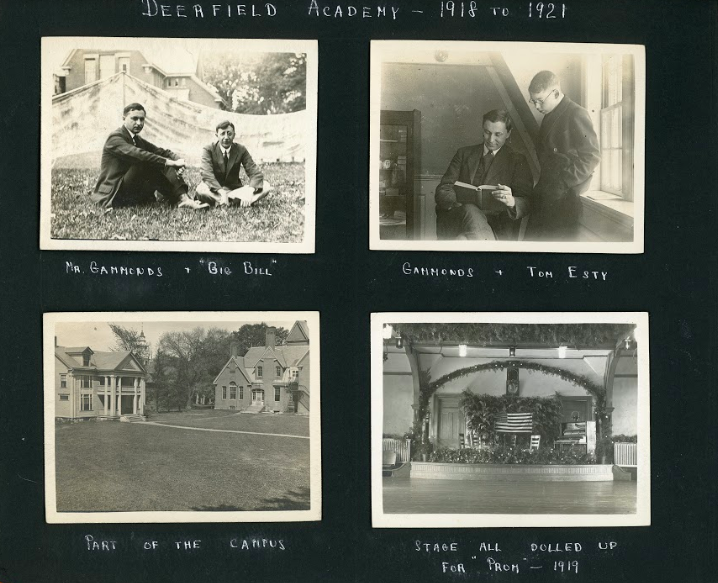For the first time in at least one hundred years of Deerfield’s history, the administration decided to postpone the annual Commencement Ceremony. In its long history, the school has experienced crises of all levels, from local to global issues. Yet, Deerfield has never before been forced to respond with such drastic measures as it has to COVID-19.

Provided that the nature of the COVID-19 pandemic is similar to that of the Spanish Flu of 1918, it is important to understand how Deerfield has reacted during a deadly international pandemic in the past. Many practices like social distancing mirror the precautions taken during the 1918 Pandemic. According to an article in the Greenfield Recorder from October 1918, the Board of Health in Greenfield ordered the closure of schools, theaters, churches, clubs, and the library to “prevent large numbers of people congregating.”
While the influenza ravaged Greenfield, Turner’s Falls, and even South Deerfield, Deerfield itself remained largely unaffected. “Deerfield has not been hit by the epidemic as far, only one very mild case being reported there, and the closing rules do not affect that part of the town,” stated a later article in the Greenfield Recorder from January 1919. However, Deerfield Academy did temporarily suspend class, extending the winter break by at least a week. “Deerfield Academy was to have reopened yesterday, and the board of health was willing, it said, provided that South Deerfield and Sunderland people did not attend,” the article further stated. This would have meant a greatly reduced attendance so Principal Frank Boyden decided to wait another week to see how conditions develop.” While it is unclear when Mr. Boyden resumed classes, archival Commencement programs show that Deerfield held graduation ceremonies in 1918, 1919, and 1920.
Deerfield not only endured the Great Depression a decade later, but it arguably emerged from it stronger. In 1930, a mere five months after the Wall Street Crash of September 1929 spurred the Great Depression, Deerfield started to raise funds for the construction of a new gymnasium and the current Main School Building. Both were completed by 1933. Furthermore, the 1930 Commencement Issue of the Scroll points out that the largest senior class in Deerfield’s history to that point graduated that year.
“The Depression was polarizing,” said Latin and Greek Teacher Daniel Houston. “Many lost everything; some gained a great deal. Deerfield was beginning to prosper in the 30s. Boyden’s work was paying off.”
During the Second World War, Deerfield students supported the war effort on the homefront. They volunteered to work on local farms in the afternoons during the annual harvest, a tradition that lasted until 1950. Furthermore, the Scroll advertised government war bonds in its pages.

Several students also served in the war directly. Kenneth F. Clark, Editor-in-Chief of the 1945 Deerfield Scroll, left in the Winter Term to serve aboard the Merchant Maine, which played a crucial role in supplying the U.S. troops with vital transportation and goods.
Several changes were also made on campus to ensure everyone’s safety. The administration canceled Spring Day in 1945 after receiving a request from the Office of Defense and Transportation. However, activities remained largely unaffected. “During the war, school life continued without much disruption,” wrote Deerfield Academy Historians Andrea and Robert Moorhead in A Pictorial History of the Academy. Despite a paper shortage, the Scroll continued to print during the years of the war, the Glee Club continued to meet, and Deerfield’s sports teams continued to play games against other boarding schools and colleges.
While these crises in the past affected every member of the Deerfield community in different ways, students were able to be resilient and overcome the difficulties in front of them. At the end of these emergencies, Deerfield as a whole became an even more tightly knit campus that provided support within the community and beyond. Deerfield’s record of resilience and service through the harshest crises in modern history proves its ability to persevere – COVID-19 is no different.

